Why Palestinians fear that if they leave northern Gaza they may never be able to return

When the Israeli evacuation order came to leave northern Gaza, airstrikes had already forced Nowar Diab and her family to relocate three times in five days.
They reluctantly decided to obey the Oct. 13 instructions for 1 million residents to move south for their own safety. As Diab, 20, an English literature student, peered out the window of the car carrying her from Gaza City, she feared that she was witnessing a repeat of something she had seen in old photographs and heard about from grandparents.
“I saw the exodus of Palestinians,” Diab said in a telephone interview. “I felt like I was dreaming and it’s not reality. And I’m a part of it; I’m taking part in it.”
Palestinians in Gaza, as well as members of the Palestinian diaspora, told NBC News that they fear Israel will use Hamas’ Oct. 7 terrorist attack to permanently expel Palestinians from the Gaza strip.
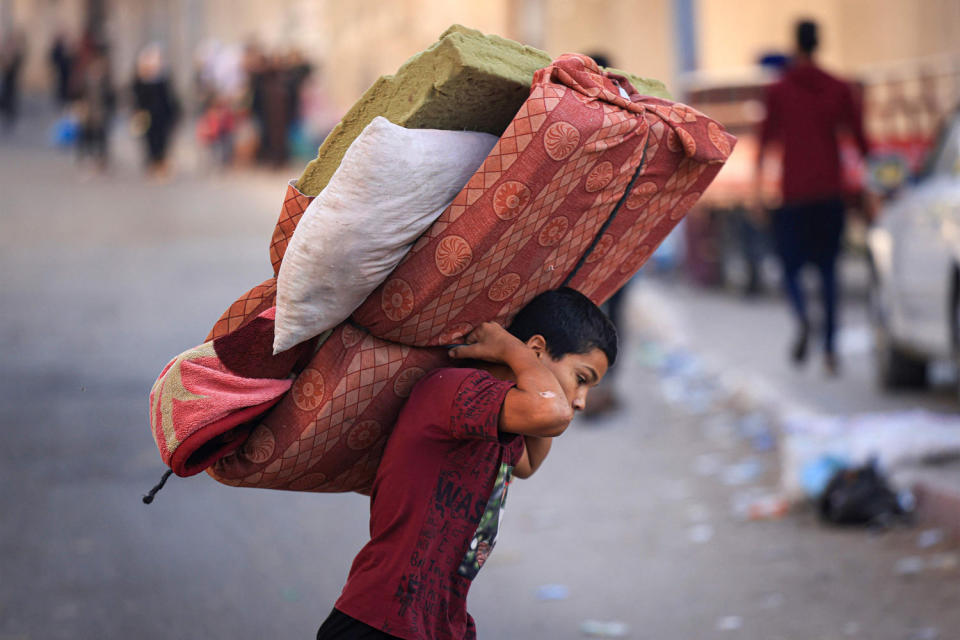
Israeli officials have said that they are asking Palestinians to leave northern Gaza for their own safety and that their goal is to destroy Hamas, not to harm Palestinian civilians. They say Israel has a right to defend itself and to protect its citizens from attack.
But Palestinians don’t see it as a fair fight. Layal Luay, 22, a Palestinian who lives in London, said that as she watched the death toll of Israelis climb after Hamas’ attack, which killed more than 1,000 Israeli civilians, she feared Palestinian civilians would suffer the consequences. Hamas tactics, which she doesn’t support, would be used to justify a crushing offensive.
“I think of all the innocent civilians on both sides, of course, that are affected by this,” she said. “When I saw all the casualties, I was like, ‘They’re going to retaliate; they’re going to come for us.’”
Luay and Diab were referring to the “Nakba,” or “catastrophe,” a reference to the forced removal of an estimated 750,000 Palestinians from their homes when Israel was founded in 1948. They see it as a core element of their identity. During the 1948 Arab-Israeli War, some Jewish militias massacred Palestinian civilians, the Israeli newspaper Haaretz reported, and hundreds of thousands of them were forced to flee their homes, according to the United Nations.
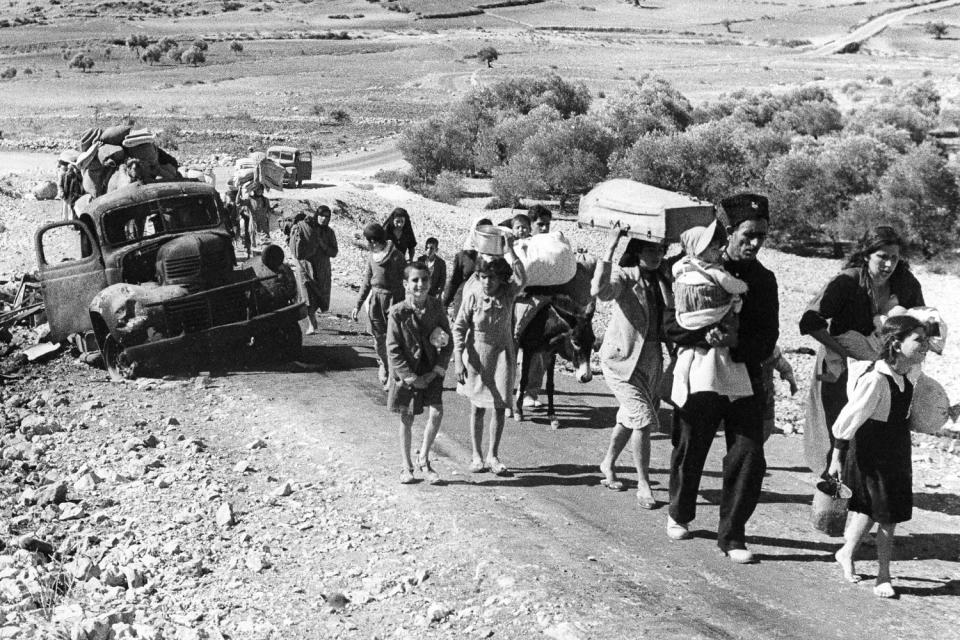
Israelis see this time period differently. After the Holocaust, hundreds of thousands of Jews sought refuge in the newly created State of Israel for their own safety. Jews had also been emigrating to Ottoman- and then British-ruled Palestine for decades.
The Israeli government has said it doesn’t intend to occupy the Gaza Strip or permanently expel Palestinians. On Sunday, U.S. Secretary of State Antony Blinken said on NBC’s “Meet the Press” that the Israelis have “absolutely no intent, no desire, to be running Gaza themselves.”
But some far-right members of Prime Minister Benjamin Netanyahu’s Likud Party support the idea of expelling Palestinians. Hours after the Oct. 7 terrorist attack, Knesset member Ariel Kallner posted a call on social media for another Nakba. “Right now, one goal: Nakba! A Nakba that will overshadow the Nakba of 48,” he wrote. “Nakba in Gaza and Nakba to anyone who dares to join!”
As the conflict enters its third week, nearly a million Palestinians in Gaza have been displaced since Israel began conducting retaliatory airstrikes, the U.N. said Saturday. According to the Palestinian Health Ministry in Gaza, 4,651 Palestinians, including 1,873 children, have been killed in Gaza.
Palestinians have passed down stories of the Nakba from generation to generation.
“This is a sort of a collective traumatic event in the minds of most Palestinians,” said historian Rashid Khalidi, the Edward Said Professor of Modern Arab Studies at Columbia University. “Back in 1948, the majority of the Arab population of Palestine was actually driven from their homes, and these are things that people remember hearing from their grandparents and their parents.”
Some Israelis have acknowledged that the Nakba occurred, said Daniel Seidemann, an Israeli attorney who supports a two-state solution to the Israeli-Palestinian conflict. “For years, Israelis were in denial about the existence of the Nakba. It’s our original sin,” Seidemann said. The Israeli right flatly rejects that view.
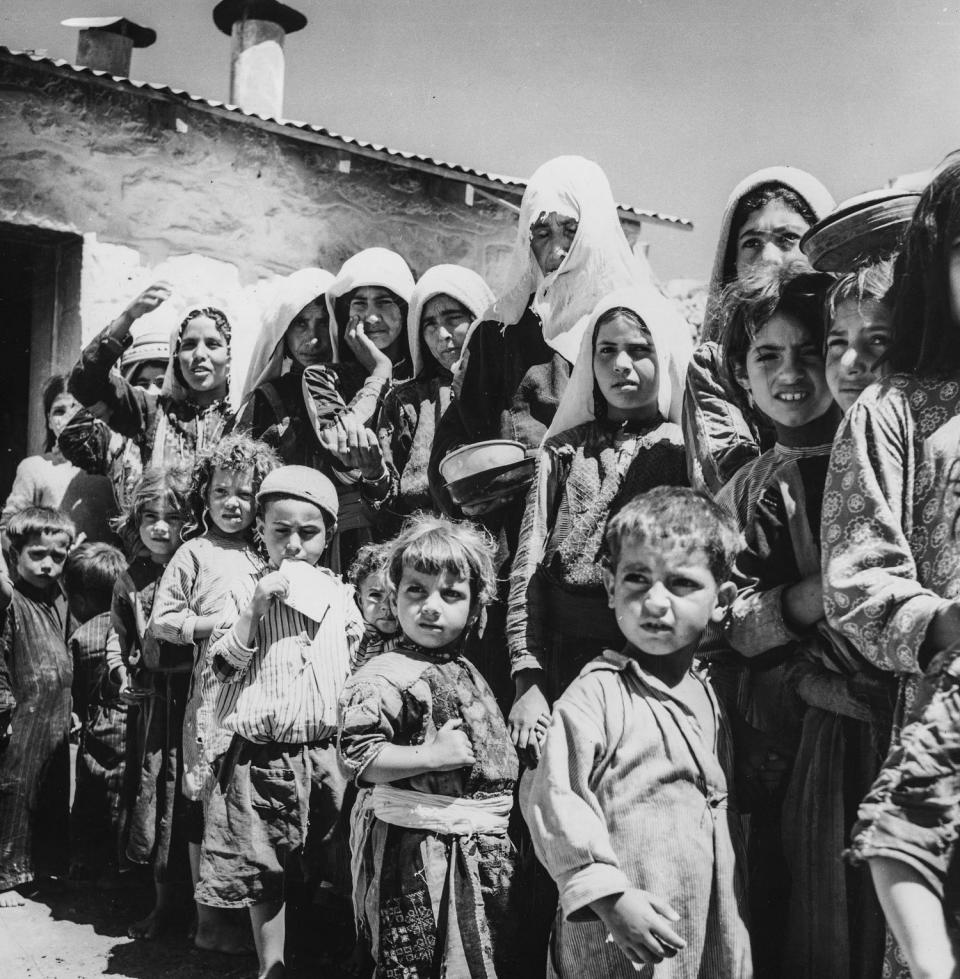
‘Horrifying’
Amjad Shabat, a Gaza City resident, hesitated when she heard about the evacuation order calling for the equivalent of 1.1 million people to flee to the south. She didn’t want to leave the home she shared with her husband and 2-year-old daughter. Many of Gaza’s current residents are descendants of Palestinians who fled their homes in 1948.
“This number is higher than the number of people that were uprooted from their villages and their cities during the Nakba,” said Shabat, a Palestinian writer. “This is horrifying.” Now that Shabat has fled to southern Gaza, she is unsure whether she will have a home to return to when hostilities subside.
In the West Bank, which is occupied by Israel and administered in part by the Palestinian Authority, fear of being displaced has been handed down through generations. Diana Buttu, a Palestinian writer and lawyer and Stanford graduate who was a spokesperson for the Palestine Liberation Organization in the 2000s, remembers hearing stories from her father, who was 9 years old during the Nakba.
“And here I am today, a mother, and my son is 9 — same age as my father was,” said Buttu, who lives in Ramallah, one of the largest cities in the West Bank. “And I feel what my grandmother was talking about and the decision that she had to make in 1948.”
Motivated by reports of violence near their village, al-Mujaydal, Buttu’s grandparents fled to the city of Nazareth. What they believed would be a short stay turned into permanent exile.
“And this is what it feels like for people in Gaza now,” Buttu said. “Some of them are saying, ‘Well, it’s only going to be for a couple of weeks.’ Some of them are saying, ‘Well, we have to go somewhere.’”
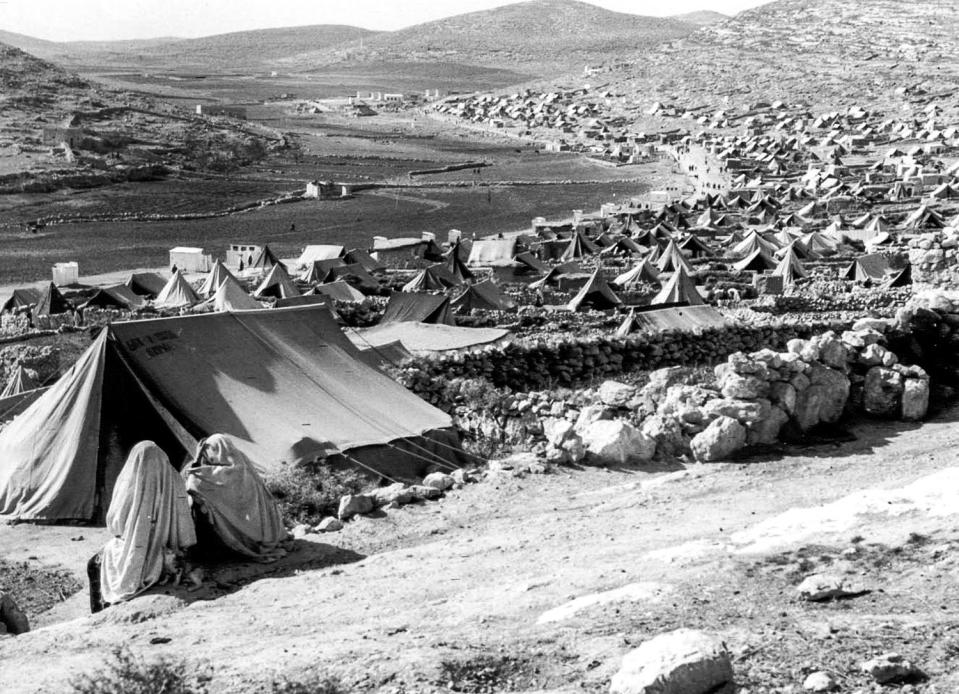
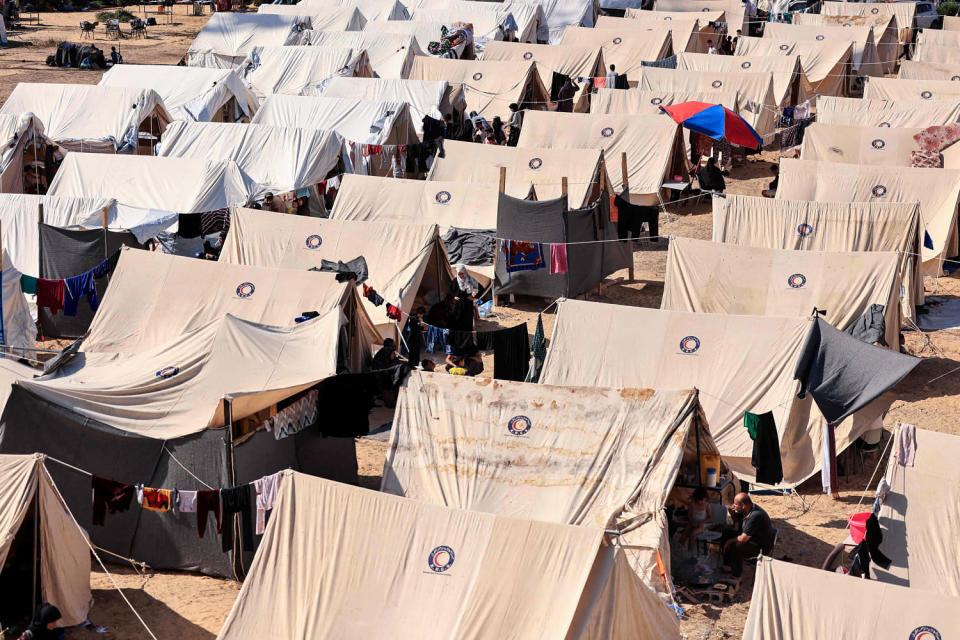
‘You might lose everything’
The fear is shared by members of the Palestinian diaspora, which stretches around the world. Luay, the 22-year-old Palestinian who now lives in London, said her grandfather left his village, al-Shajara, to study in Australia just before the Nakba. The village was in what is now northern Israel.
When he came back, his brother had been killed, said Luay, who grew up in Austria. It took her grandfather months to find the rest of his family, who had fled to Syria.
An estimated 5.9 million Palestinians are refugees today as a result of the 1948 conflict, including their descendants, according to the U.N. Multiple human rights groups and the U.N. have called for the return of Palestinian refugees to their homes, but 75 years later, many haven’t been able to do so.
The fear of not being able to return has made Gazans extremely hesitant to leave their homes. They also say travel south presents its own risks and peril as Israel intensifies strikes. As of Sunday, Israel has hit dozens of targets in the south since Oct. 13, The New York Times reported.
Said Alhayek, a software engineer who grew up in northern Gaza, graduated from Brigham Young University and now lives in Las Vegas, said his father’s “deep” connection to their home was one of the reasons his father, his mother and two of his siblings haven’t left even amid intense bombing.
“My father also planted every tree in our front and back yard. He took care of it meticulously,” Alhayek said.
The events of 1948 loom large over his father, Alhayek said.
“He realizes if he leaves there’s always this thought,” he said. “If you leave, you might lose everything. If your house is gone, your memories are gone.”
- Questions and Answers
- Opinion
- Story/Motivational/Inspiring
- Technology
- Art
- Causes
- Crafts
- Dance
- Drinks
- Film/Movie
- Fitness
- Food
- Spellen
- Gardening
- Health
- Home
- Literature
- Music
- Networking
- Other
- Party
- Religion
- Shopping
- Sports
- Theater
- Wellness
- News
- Culture
- War machines and policy

